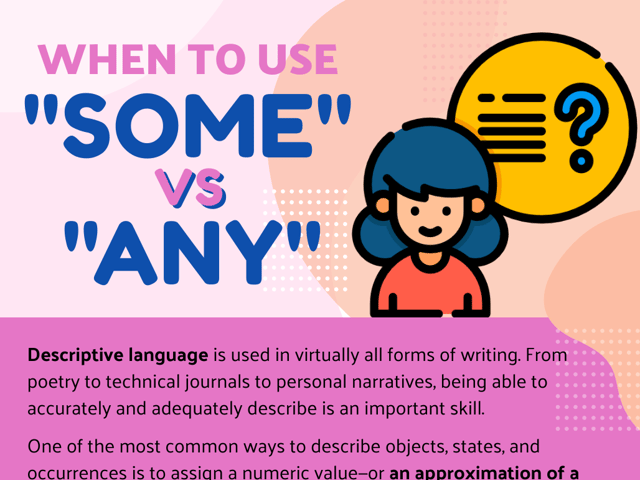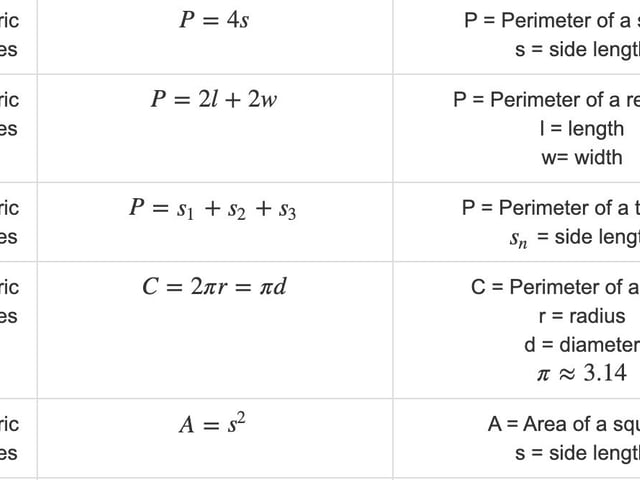
How to Do Well on the CBEST Writing Section
An Overview of the CBEST Exam
The California Basic Educational Skills Test, better known as the CBEST, is a standardized test administered throughout California, Oregon, and Nevada. It is a critical stepping stone for individuals who aspire to work in the education field within these states. The CBEST is required for all individuals seeking teaching credentials or services credentials, including individuals seeking emergency permits.
Designed by the Commission on Teacher Credentialing (CTC), the purpose of the CBEST is to ensure that prospective teachers, administrators, and other school personnel have proficient basic skills in reading, writing, and mathematics. Therefore, the CBEST acts as a quality control measure, confirming that educators have the essential skills necessary to effectively teach and guide students.
The CBEST is divided into three sections: Reading, Mathematics, and Writing, each designed to measure basic skills commonly taught and used in schools’ educational programs.
The Reading section includes 50 multiple-choice questions that test reading comprehension.
The Mathematics section also comprises 50 multiple-choice questions, assessing estimation, measurement, computation and problem-solving, statistical principles, and mathematical concepts.
The Writing section, however, stands out because it requires constructed responses rather than multiple-choice answers. It involves the composition of two essays, each in response to a given prompt. This section is specifically designed to evaluate your skills in written English — spelling, punctuation, grammar, and syntax, as well as your ability to communicate effectively and think critically.
Given its significance and its role in helping you advance your career in education, adequate preparation for the CBEST, and specifically for its writing section, is essential. In the following sections, we delve deeper into the specifics of the CBEST essay, its scoring, and tips to excel in it.
Understanding the CBEST Writing Section
The CBEST Writing test is indeed intended to gauge basic skills, specifically focusing on the areas of reading, comprehension, and writing. Unlike some tests that assess your ability to recall memorized facts, the CBEST essay aims to measure your ability to comprehend information, analyze situations, and clearly convey your thoughts in writing.
Types of CBEST Essays
There are two distinct types of essay prompts you will encounter in the CBEST writing section. Understanding the nuances of each will allow you to better prepare for both.
Personal Narratives/Opinions
One essay will typically prompt you to write a personal narrative or an opinion-based piece. This essay aims to test your ability to articulate a personal experience or viewpoint clearly and engagingly. It could involve sharing a significant life experience, recounting an event that changed your perspective, or expressing your standpoint on a given topic.
Analytical/Expository Essays
The other essay will require an analysis or exposition of a specific issue. This type of essay tests your ability to critically evaluate a subject and construct a well-reasoned argument about it. You might be asked to explore causes and effects, advantages and disadvantages, or propose solutions to a given problem.
Time Management
You are allotted 90 minutes for the Writing section, so each essay you write must be completed in approximately 45 minutes. This time limit necessitates that test-takers not only have a good understanding of the essay topics but also be adept at managing their time effectively. You will need to plan your response, compose your essay, and review your work for errors within this timeframe, which can be challenging. Therefore, practicing under timed conditions is highly recommended as you prepare for the CBEST writing section.
With a deeper understanding of the CBEST essay, you are better equipped to tailor your preparations to the unique requirements of this section, and hence, better positioned to succeed on the test day.
Scoring Details of the CBEST Essay
Understanding how your essay will be scored is essential to succeeding in the CBEST writing section. Your essay will be evaluated by at least two readers and assigned a score between 1-4. These scores are then added together and converted to a scaled score that ranges from 20 to 80.
To pass the writing section, you need a scaled score of at least 41. Interestingly, the CBEST has a unique scoring system where you can pass with a lower writing score if your performance in the other sections compensates for it. Specifically, if your overall score for reading, mathematics, and writing combines to 123 or more, you can pass with a minimum writing score of 37.
Evaluating the Essay
Your essays will be evaluated by trained scorers who use a standard set of criteria to assess your work. The following aspects will be carefully examined in your essays:
Understanding the Topic
The scorers will first assess how well you understood the prompt. This requires showing a clear comprehension of the question or statement presented in the prompt and addressing it appropriately in your response.
Clarity of Writing
Your essay should be well-organized, with a clear introduction, body, and conclusion. The use of transitional phrases to link thoughts and maintain a logical flow of ideas is highly recommended. Also, your writing should be easily understandable, with proper sentence structure and word choice.
Ability to Form and Express Logical and Sound Arguments
For the analytical/expository essay, scorers will be looking for your ability to present a well-reasoned argument or discussion. This involves setting up a thesis, providing evidence or examples to support your points, and drawing logical conclusions.
For the personal narrative/opinion essay, your ability to convey your thoughts, feelings, and experiences in an engaging, coherent manner is key. Your story or viewpoint should be effectively communicated, with a clear purpose and significance.
Grammar and Punctuation
Grammatical and punctuation accuracy is critical. Even if your essay is well-structured and your arguments are sound, frequent errors in grammar, spelling, and punctuation can detract from the overall quality of your essay and impact your score.
Tips to Excel in the CBEST Writing Section
Acing the CBEST essay requires a blend of comprehension, planning, writing, and reviewing. Here, we delve deeper into each step to provide a comprehensive guide on how to excel in the CBEST essay.
Step 1: Understand the Prompt
Before you begin writing, it is critical to ensure that you fully understand the essay prompt. This is a crucial step as misinterpreting the prompt could lead you to write an off-topic essay, no matter how well-written it might be.
Take a few moments to read and reread the prompt. Break it down if necessary and pay attention to keywords or phrases that give you clues about what the prompt is asking for.
If the prompt is asking for an analysis or exposition, identify the main issue you need to analyze or discuss. Understand what your main argument or discussion points will be. If it’s a personal narrative or opinion piece, contemplate on the experiences or viewpoints you can share that are relevant to the prompt. Thankfully, the CBEST prompts are typically short and simple, so this step should not take a great deal of time or analysis.
Step 2: Plan Your Essay
Once you have a clear understanding of the prompt, you need to plan your essay. Start by developing a clear and concise thesis statement that directly addresses the prompt. This statement will act as the backbone of your essay.
Next, brainstorm the main points that you want to discuss in your essay. These points should support your thesis statement and should be relevant to the prompt. Organize these points in a logical order to maintain a clear flow of ideas throughout your essay.
After organizing your main points, outline your essay into an introduction, body paragraphs, and a conclusion. Each body paragraph should focus on one main point. Having this outline will help keep your essay structured and ensure you don’t stray off topic.
Step 3: Write Your Essay
With your essay plan in hand, you’re now ready to write your essay. Start with an engaging introduction that includes your thesis statement. The introduction should set the tone for your essay and give the reader an idea of what to expect.
Each body paragraph should focus on one main point from your outline. Begin each paragraph with a clear topic sentence and provide evidence or examples to support the point. Remember to use transitional phrases to link your ideas and maintain the logical flow of your essay.
End your essay with a strong conclusion that summarizes your main points and reemphasizes your thesis statement. The conclusion should leave the reader with a clear understanding of your main argument or narrative.
Step 4: Review and Edit
The final step is to review and edit your work. This step is often overlooked, but it is just as important as the others. After writing your essay, take a few minutes to read through it. Check for any grammatical or spelling errors. Make sure that your essay flows well and that your arguments are well-structured and supported.
Also, ensure that your essay remains on topic and that you have adequately addressed the prompt. Remember, the scorers are looking for clarity of writing and the ability to form and express logical arguments or narratives.
By taking the time to understand the prompt, plan your essay, write clearly and logically, and review your work, you will be well-prepared to excel on the CBEST essay.
Practice Makes Perfect
One of the most effective ways to prepare for the CBEST Writing section is to practice writing essays. You can find practice prompts online. Use these prompts to write practice essays, then review and revise them.
Remember, the CBEST is designed to assess your ability to apply your knowledge rather than recall facts. Keep practicing to improve your ability to understand prompts, plan your essays, and express your ideas clearly and effectively.
By following these steps and continually practicing, you will be well-prepared to succeed on the CBEST essay. Good luck with your preparation!
Keep Reading

California Basic Educational Skills Test Blog
Essay Writing Practice and Prompts for the CBEST
The CBEST (California Basic Educational Skills Test Exam) consists of t…

California Basic Educational Skills Test Blog
When to Use “Some” vs. “Any”
Descriptive language is used in virtually all forms of writing. From po…

California Basic Educational Skills Test Blog
Formulas for the Math Section of the CBEST® Test
There’s ONE single skill you have to master if you want to ace the CBES…